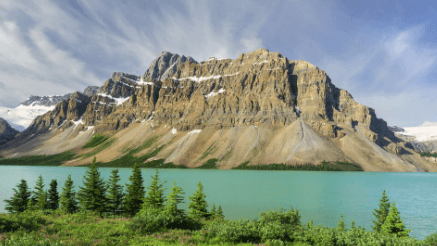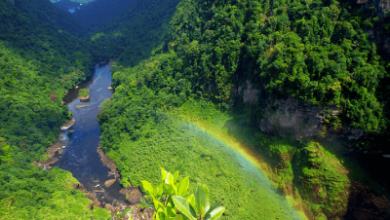Mountain:Xp6pxnmj3zc= Landscapes

Mountain landscapes present a complex interplay of geological formations, ecological significance, and cultural heritage that merits deeper examination. These formidable terrains not only shape local climates and biodiversity but also influence the lives and identities of the communities that reside within their shadows. As we explore the unique features and ecological roles of these majestic giants, we must also consider the myriad activities they offer and their profound impact on human experience. What unfolds in this multifaceted dialogue may reveal unexpected connections between nature, culture, and recreation.
Unique Features of Mountain Landscapes
Mountain landscapes are characterized by their striking topography and diverse ecosystems, which together create a unique tapestry of natural beauty.
The rugged terrain showcases dramatic peaks, steep cliffs, and deep valleys, while the delicate alpine flora thrives in these challenging conditions.
This rich biodiversity not only enhances the visual allure but also supports a myriad of life forms, inviting adventurers and nature enthusiasts alike.
See also: Modern:-K_Nqjrkq50= House
Ecological Importance of Mountains
Over 25% of the world’s terrestrial ecosystems are found in mountainous regions, highlighting their critical role in maintaining global biodiversity.
These areas serve as biodiversity hotspots, harboring unique flora and fauna.
Additionally, mountains influence climate regulation by acting as barriers to wind and precipitation patterns, thereby ensuring water availability for surrounding ecosystems.
Their preservation is vital for sustaining ecological balance and biodiversity.
Cultural Influence of Mountain Regions
Rich in biodiversity, mountainous regions also possess a profound cultural significance that shapes the identities and traditions of the communities that inhabit them.
These landscapes inspire mountain mythology, where peaks are revered as sacred entities, embodying spiritual significance.
Such beliefs foster a deep connection between people and nature, promoting a sense of freedom and identity that transcends generations, enriching cultural heritage and communal bonds.
Activities to Enjoy in Mountain Areas
Adventure awaits those who venture into the stunning embrace of mountainous terrains, where a plethora of activities beckon outdoor enthusiasts year-round.
Explore the exhilarating hiking trails that wind through breathtaking landscapes, offering unparalleled views and a deep connection with nature.
For adrenaline seekers, mountain biking presents thrilling descents and challenging paths, allowing riders to experience the rugged beauty of the mountains in an exhilarating way.
Conclusion
In summation, mountain landscapes embody a striking interplay of natural beauty and ecological significance. These majestic formations serve as vital reservoirs of biodiversity and climate regulation, while their cultural resonance echoes through the ages, much like the ancient tales of explorers charting unknown territories. The myriad activities offered in these high-altitude realms invite adventurers to engage with nature’s wonders. Ultimately, mountains stand as timeless monuments, shaping both the environment and the spirit of humanity across generations.







